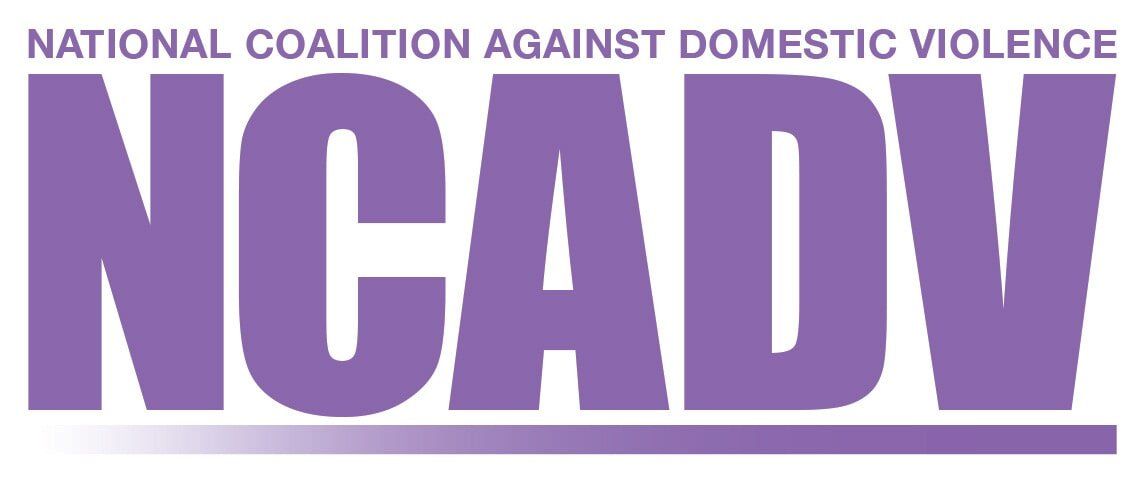If you need to leave our website in a hurry, simply click "
Escape Now" to go directly to
Google
Get Help; Protect Yourself
What is Domestic Violence (DV)?
Domestic Violence
is about power and control. It is never to be confused with love, caring or respect. It is a pattern of behavior that includes the use of threat and/or violence and intimidation for the purpose of gaining power and control over another person or persons.

Did you know?
- Domestic violence occurs in all types of families: rich, poor, old and young
- Every 34 minutes, Arizona law enforcement files a report about a domestic
- Abuse crime witnessed by a child
- Every 15 seconds a woman is beaten
- Domestic abuse is the leading cause of injury to women between the ages of 15 and 44
- Domestic violence affects 1 out of 3 Arizona residents
- You are not alone!
- Some Warning Signs of DV

Does Your Partner:
- Embarrass you with bad names and put-downs?
- Look at you or act in ways that scare you?
- Control what you do, say, wear or who you talk to and where to go?
- Prevent you from talking to your friends or your family members?
- Take your money, make you ask for money or refuse to give you money?
- Make all decisions without your input?
- Abandon you and your children in places where you have no way of getting home?
- Tell you that you are a bad parent, or threaten to take your children away?
- Act like the abuse is no big deal?
- Destroy your property or threaten to kill or hurt your pets?
- Intimidate you with guns, knives, or other dangerous weapons?
- Hit, slap, shove, bite, kick or punch you?
- Force you to drop all/any charges filed against them?
- Threaten to hurt you?

Why does the victim stay with the abuser?
This is the question most asked, instead of asking why someone batters in the first place. There is a victim-blaming attitude. People who are abused often hear that they must need or like such treatment or they would leave. In reality, someone's reasons for staying are much more complex:
- Fear that the abuser's actions may become more violent or even lethal if she attempts to leave. In fact, the most dangerous time for a woman who is battered is when she leaves.
- Friends and family may not support her leaving.
- Leaving could mean losing custody of the children, losing financial support and or experiencing harassment from the abuser at work.
- She may have been cut off from all finances, including the ability to hold a job, bank accounts and cash, or have poor credit due to the abuser.
- The relationship is filled with the ups and downs of good times and love, then abuse, intimidation, and fear.
- A fear of being “outed”, either for his or her sexual orientation, substance abuse, or that their home life is not as ‘picture perfect' as it may appear to their social group.
- She may have traditional ideas on family and divorce.
What is Sexual Violence?
Sexual violence occurs whenever a person is forced, coerced, and/or manipulated into any unwanted sexual activity, including when s/he is unable to consent due to age, illness, disability, or the influence of alcohol or others drugs
Did you Know:
- Sexual violence effects 1 in 5 women and 1 in 6 men (CDC 2017)
- Every 98 seconds an American is sexually assaulted (RAINN)
- American Indians are twice as likely to experience a rape/sexual assault compared to all races.
- Only 16% of rapes are reported to law enforcement (Bureau of Justice, 2000)
What About Men?
The vast majority of men are not violent and want to stop domestic violence because it is the women in their lives – their mothers, daughters, sisters – who are the victims. As children, men may have been abused themselves, or watched their own fathers use violence to assert or maintain control over their mothers. Domestic violence affects everyone, male and female. It is a human issue!
Safety Planning
If you are still in the relationship:
- Think of a safe place to go if an argument occurs – avoid rooms with no exits (bathroom), or rooms with weapons (kitchen).
- Think about and make a list of safe people to contact.
- Keep change with you at all times. Memorize all important numbers.
- Establish a “code word” or “sign” so that family, friends, teachers or co-workers know when to call for help.
- Think about what you will say to your partner if he/she becomes violent.
- Remember: You have the right to live without fear and violence.
If you have left the relationship:
- Change your phone number.
- Screen calls. Save and document all contacts, messages, injuries or other incidents involving the batterer.
- Change locks, if the batterer has a key. Avoid staying alone.
- Plan how to get away if confronted by an abusive partner.
- If you have to meet your partner, do it in a public place.
- Vary your routine.
- Notify school and work contacts.
- Call a shelter for battered women.
Workplace Guidelines
There are 60,000 incidents of on-the-job violence each year, and most victims know their attackers intimately. (Chicago Sun Times, 9/30/96)

If you are experiencing domestic violence:
- Notify your supervisor and the human relations manager about the circumstances regarding your situation.
- Discuss options available to you, e.g., scheduling, safety precautions, employee/family assistance benefits.
- Submit a recent photo of the perpetrator to your safety manager in the event of a confrontation at work.
- Request that all information be treated with confidence to provide for your safety and well-being.
If you are the co-worker of someone experiencing domestic violence:
If you suspect a co-worker is suffering abuse, do not directly confront her/him since it is important for an individual to self-disclose for her/his own safety and well-being.
Express concern and a willingness to listen and be supportive if needed.
Offer support by listening and assisting; when an individual is ready, she/he will confide. If a co-worker confides in you, encourage communication with the human resources manager and her/his supervisor.
If you witness an incident at work, contact your safety manager or law enforcement immediately. Make sure that the incident is documented.
If you are the co-worker of someone experiencing domestic violence:
- Be aware of unusual absences or behavior and take note of bruises or emotional distress.
- Contact the human resources manager to discuss concerns, resources available and ways to support the employee, e.g., safety planning, employee assistance counseling, family resource referrals, flexible scheduling, security measures.
- Be familiar with community resources and referrals.
- Maintain confidentiality at all times; be sensitive to the seriousness of the situation.
- Discuss who is appropriate to speak with the employee; agree on all forms of communication, e.g., providing the safety manager with a photo if there is a risk at work.
- Assist the employee in documenting all incidents with the batterer that occur in the workplace.
- Take action against domestic violence by encouraging employees to volunteer and by providing financial or in-kind support to your local domestic violence programs.
Safety Tips
What do I do if I am being threatened or attacked?
- Stay away from the kitchen (the abuser can find weapons).
- Keep an emergency fund of cash or access to an ATM that abuser does not know about.
- Stay away from any small spaces (like bathrooms, closets, attics, etc.) where the abuser can trap you.
- Get to a room with a door or window to escape.
- Get to a room with a phone to call for help; lock the abuser outside if you can.
- Call 911 (or your local emergency number) right away for help; get the dispatcher's name.
- Plan ahead–think of a neighbor or friend you can run to for help, even if it is only transportation to somewhere else.
- If a police officer comes, tell him/her what happened; get his/her NAME & BADGE NUMBER.
- Take pictures of bruises or injuries
If you are thinking about leaving the relationship:
If you leave the relationship or are thinking of leaving, you should take important papers and documents with you to enable you to apply for benefits or take legal action.
Important papers you should take include social security cards and birth certificates for you and your children, your marriage license, leases or deeds in your name or both yours and your partner's names, your checkbook, your charge cards, bank statements and charge account statements, insurance policies, proof of income for you and your spouse (pay stubs or W-2's), and any documentation of past incidents of abuse (photos, police reports, medical records, etc.)
Some or all of details of this page were taken from the website of the National Coalition Against Domestic Violence.
Eve's Place is a member of NCADV.
Important papers you should take include social security cards and birth certificates for you and your children, your marriage license, leases or deeds in your name or both yours and your partner's names, your checkbook, your charge cards, bank statements and charge account statements, insurance policies, proof of income for you and your spouse (pay stubs or W-2's), and any documentation of past incidents of abuse (photos, police reports, medical records, etc.)
Some or all of details of this page were taken from the website of the National Coalition Against Domestic Violence.
Eve's Place is a member of NCADV.
Safety on the Web

Warning
Taking all of the actions on this page may not prevent an abuser from discovering your email and Internet activity. The safest way to find information on the Internet is to go to a safer computer. Some suggestions would be your local library, a friend's house or your workplace. Other safety suggestions: Change your password often, do not pick obvious words or numbers for your password, and make sure to include a combination of letters and numbers for your password.
PLEASE NOTE: Some of the below “How To's” have links that will take you directly to websites which contain additional information about how to clear the cache of your browser. Eve's Place is not responsible for the content of any external web sites linked herein. Also, any external pages will not contain an “ESCAPE” feature.
What is our “ESCAPE” Flag for?
If you've not already noticed, every page on our website contains an “ESCAPE” flag. This flag is placed at the top left of every page and will “remain” in that same position as you curse down to read additional information. If someone threatening comes into the room, you can click this flag and immediately be taken to a safe web page. We have selected Google.com as this page. When clicked, you will be taken to the main Google page where you can then pretend to be searching for something to avoid scrutiny. Please be aware that this does not clear your cache, so if the “Back” button is clicked, you will be taken back to whatever page you were viewing before you clicked “ESCAPE.” The flag is only meant to hide the page you were just viewing from immediate view.
How An Abuser Can Track Your Activities
Email
If an abuser has access to your email account, he or she may be able to read your incoming and outgoing mail. Even if you believe your account is secure, make sure you choose a password he or she will not be able to guess.
If an abuser sends you threatening or harassing email messages, you can print and save them as evidence of this abuse. These messages may also constitute a federal offense. For more information on this issue, contact your local United States Attorney's Office.
How An Abuser Can Track Your Activities
History/cache file
If an abuser knows how to read your computer's history of cache file (automatically saved web pages and graphics), he or she may be able to see information you have viewed on the Internet.
You can clear your history or empty your cache file in your browser's settings*
Please note: If you do not see your Internet browser listed above, please check the help files in your browser to find out how.
*This information may not completely hide your tracks. Many browser types have features that display recently visited sites. The safest way to find information on the Internet would be at a local library, a friend's house, or at work.
Some of the details of this page were taken from the website of the National Coalition Against Domestic Violence.
Eve's Place is a member of
NCADV.
Button will send you to the Indiana University Site for more information
Contact Information
Main Office: 623-537-5380
Eve's toll free: 844-301-7908
Fax: 623-547-6251
Address: 8877 N 107th Ave., Suite 302-497
Peoria, AZ 85345
Email: info@evesplace.org
Content, including images, displayed on this website is protected by copyright laws. Downloading, republication, retransmission or reproduction of content on this website is strictly prohibited. Terms of Use
| Privacy Policy












